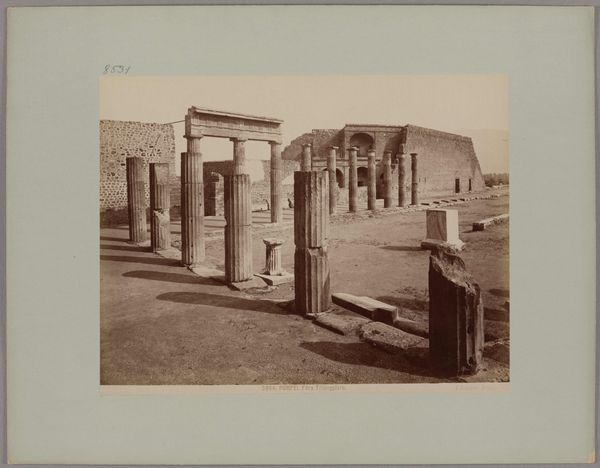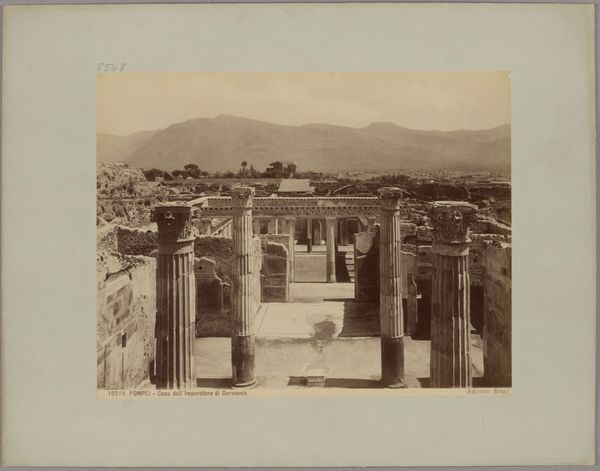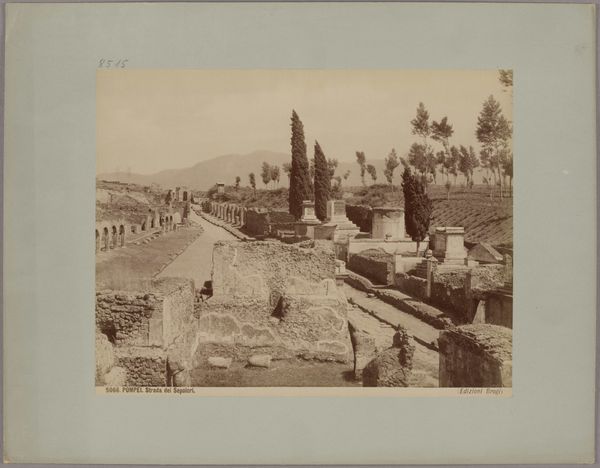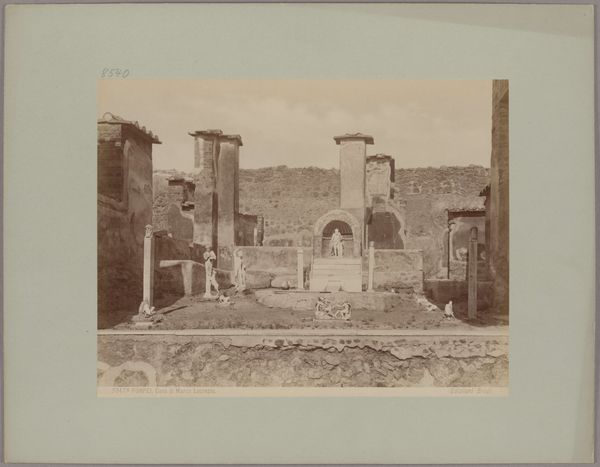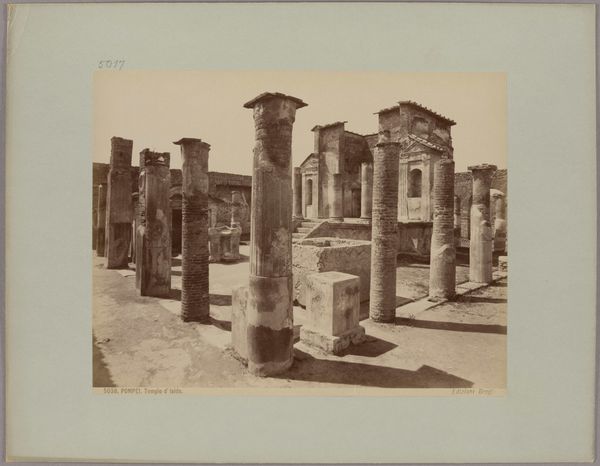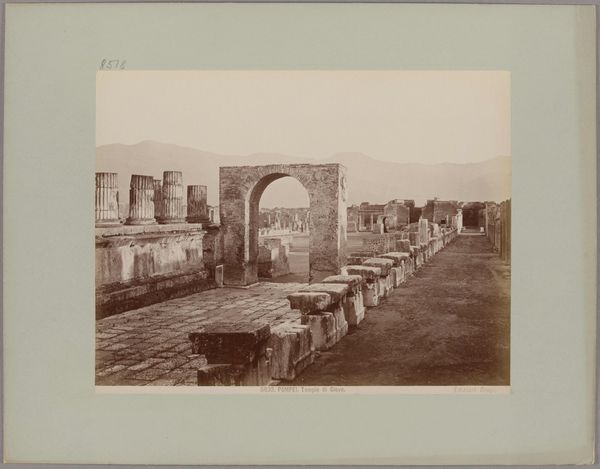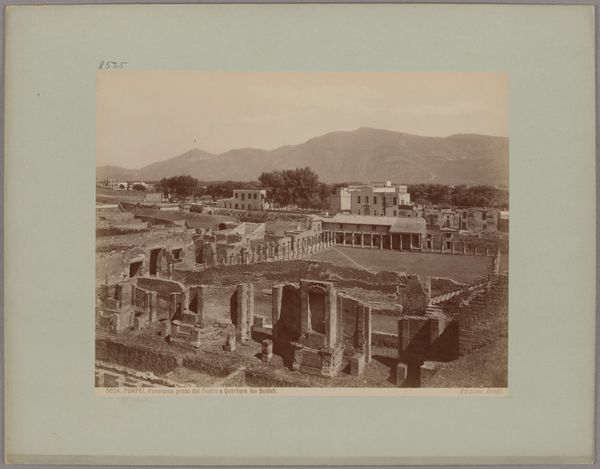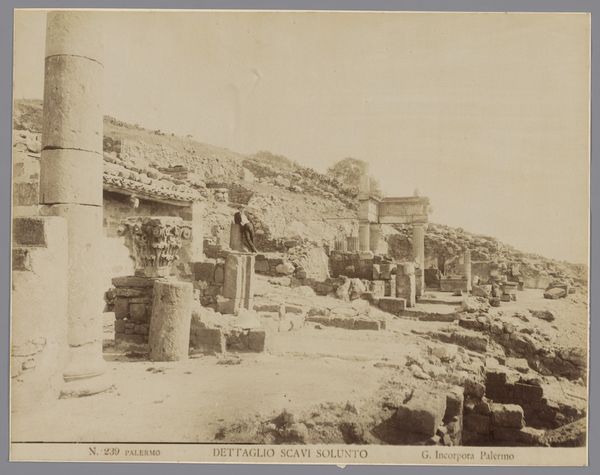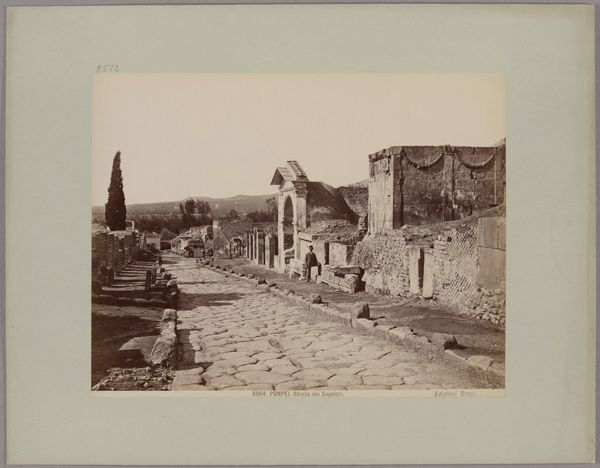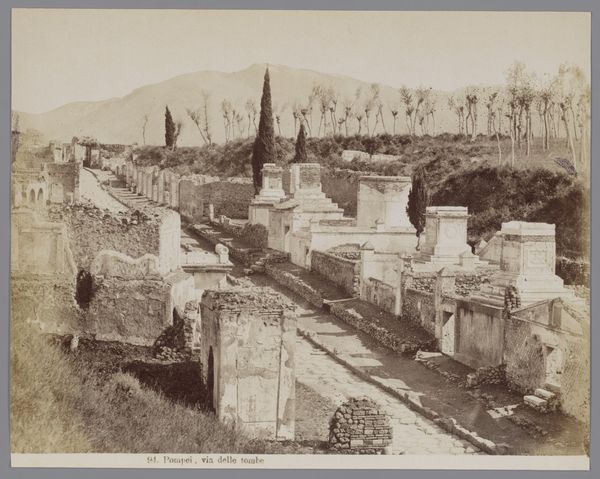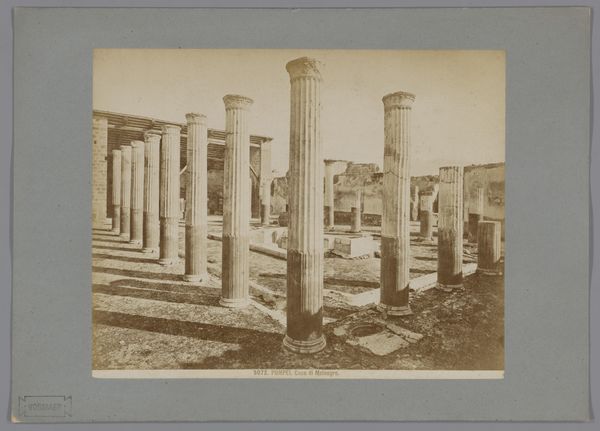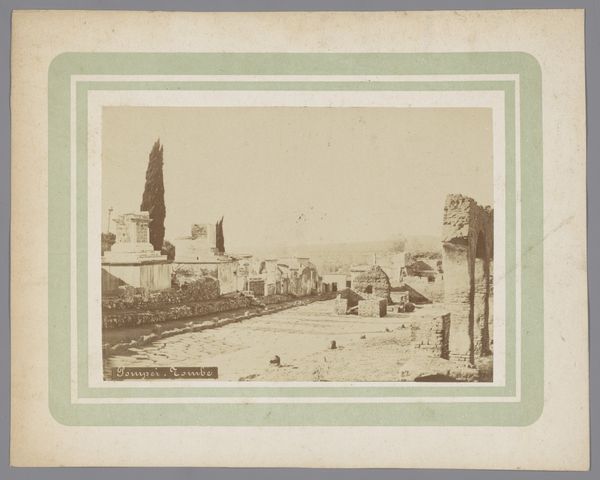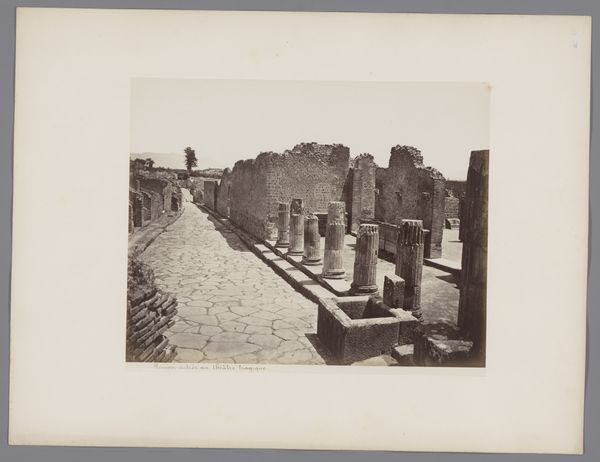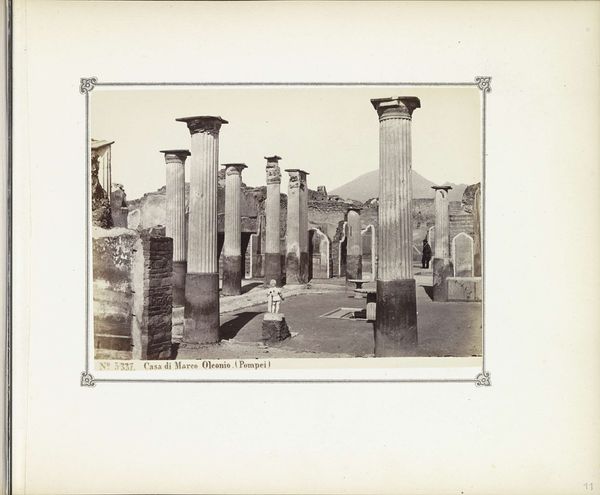
Pompeii_ House of the New Faun, new excavations, reproduced in 1880, No. 5266 c. 1870 - 1880
0:00
0:00
albumen-print, print, etching, paper, photography, albumen-print, architecture
#
albumen-print
#
16_19th-century
# print
#
etching
#
landscape
#
paper
#
photography
#
ancient-mediterranean
#
albumen-print
#
architecture
#
realism
Copyright: Public Domain
Giacomo Brogi made this albumen print in 1880, depicting the House of the New Faun in Pompeii following new excavations. Brogi’s photograph exists at the intersection of history, culture, and identity, as it freezes a moment in time when the rediscovery of Pompeii captured the imagination of 19th-century Europe. Pompeii became a site onto which contemporary desires were projected. The House of the Faun, one of the city’s largest and most opulent private residences, speaks to the complex social structures of the Roman Empire. This house, with its blend of public and private spaces, reflects the performance of social class and power. The enslaved people who maintained such grand houses remain notably absent from these images, yet their labor was essential to the lifestyle the ruins evoke. Consider how this image, created through the relatively new medium of photography, allows us to contemplate the relationship between past and present. It invites us to reflect on how we construct narratives around history, often revealing as much about ourselves as about the past we seek to understand.
Comments
No comments
Be the first to comment and join the conversation on the ultimate creative platform.
